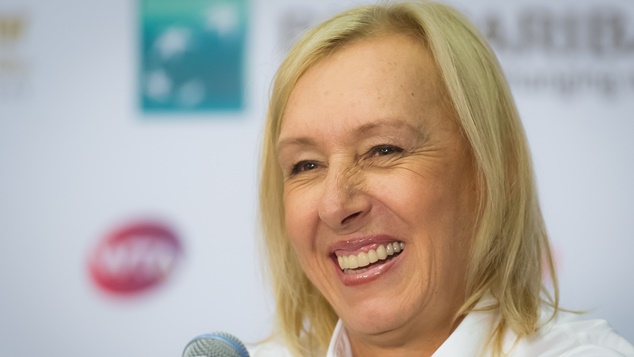Tennis champ Martina Navratilova didn’t get to come out on her own terms
Considered one of the greatest tennis players of all time Navratilova won 59 Grand Slam titles across the singles and doubles categories in a career that spanned the 1970s and 1980s. She won the Women’s Singles at Wimbledon a record nine times.
Hailing from Czechoslovakia, the tennis player made a big impact on the game in the early 1970s. She was the runner-up at the Australian Open in 1975, losing to Evonne Goolagong, and also was the runner-up at the French Open, losing to Chris Evert.
After she lost to Evert again in the semi-finals at the US Open, she went to US authorities and informed them she wished to defect from her communist homeland. A month later she was given a green card and in 1981 became a US citizen.

Shortly after gaining her US citizenship, she gave an interview to sports reporter Steve Goldstein at the New York Daily News where she revealed she was bisexual and had been in a relationship with author Rita Mae Brown.
The tennis star asked the reporter not to reveal the information until she was ready to come out, but it was published on this day in 1981 in the newspaper against her wishes.
Navratilova has since described herself as a lesbian. She was in a long-term relationship with author Judy Nelson. Their relationship ended in 1991, and resulted in a public palimony lawsuit that was eventually settled out of court. In 2014 Navratilova proposed to her longtime girlfriend, for Miss USSR Julia Lemigova, the couple wed the following year.
After her tennis career ended Navratilova has been a political activist in the realms of gay and lesbian rights, animal rights and supporting the needs of underprivileged children.
She has often been a polarising figure in the queer communities for her stance on transgender people’s participation in sport.
In 2008 Navratilova became a Czech citizen again, while retaining her US citizenship.
OIP Staff
You can support our work by subscribing to our Patreon
or contributing to our GoFundMe campaign.






